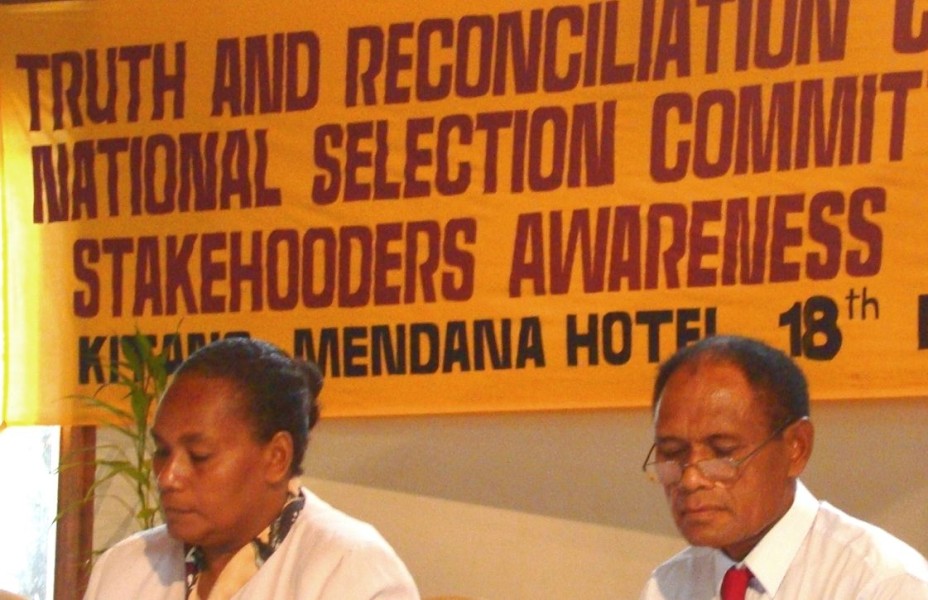Background: Reconciling the Tensions
From 1998 many people from densely populated provinces such as Malaita settled in the capital Honiara in search of work. Between 1998 and 2003—the period know as "the tensions"—violent land disputes between settlers and militants based in Honiara left many people internally displaced.
Although numerous peace agreements were signed from 1999, the violence—which included beatings, arson, kidnapping, looting, torture, rape and extrajudicial detentions—continued. In 2000 militants took control of the police armory and forced the Prime Minister to resign at gun point.
By early 2003, armed groups had brought the state to the brink of collapse. In July 2003, the government welcomed the Regional Assistance Mission for Solomon Islands (RAMSI), a multinational regional police-centered force. Its mission was to restore law and order and rebuild the country’s institutions.
With support from RAMSI, the Solomon Island’s judiciary held several dozen "tension trials" for crimes committed from 1998 to 2003. The government established a Ministry of National Unity, Peace and Reconciliation to deliver reconciliation programs including workshops and consultations with communities and leaders.
Other conflict resolution initiatives have included the symbolic exchange of food and traditional shell money between parties to represent reconciliation and forgiveness. The government also established compensation programs in 2001 and 2002, although these have been heavily criticized for compensating militants and politicians instead of those most affected by the conflict.
In 2008, the Solomon Islands Government legislated to establish a Truth and Reconciliation Commission (TRC) to investigate past abuses. The TRC officially began its activities on January 15, 2010, and its initial one-year mandate was extended to January 2012.
